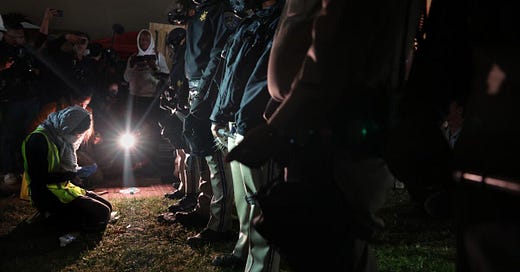Two Truths and the Attacks on UCLA
Thoughts on our on-campus protests through the lens of the Noble Truths
This post has remained structurally and thematically the same since originally posting this 5/13. It has been edited for concision and framing as of 5/14.
A few days ago, I shared a fiery take on the …




